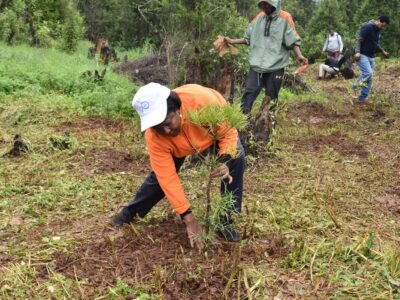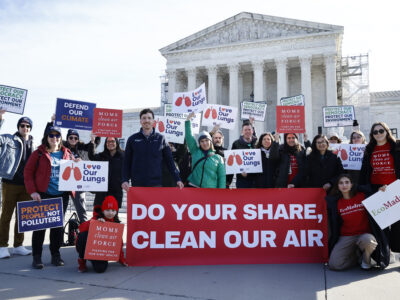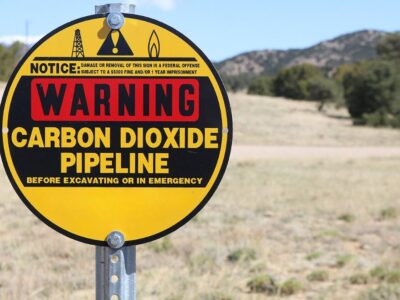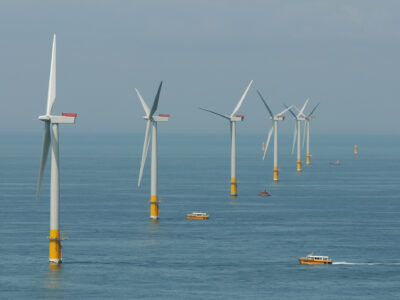Actually, EV Sales Are Right on Track
Don’t believe the current anti-EV spin.
There is a lot of talk about weak consumer demand for EVs — doleful from greens, triumphant from others. Maybe US carmakers have hit a few speed bumps --not surprising when trying to rapidly ramp up a product that's new to most consumers. But the reality is actually quite reassuring in terms of the U.S. market. Globally, the picture is even rosier for EVs, with the big open question being whether U.S. carmakers are going to be shoved to the curb by the Chinese. Le...
CONTINUE READINGMisusing Carbon Removal as a Climate Response
Carbon removal is an alluring idea. That also makes it a tempting façade for bad policies.
It seems clear that in some form, carbon removal is going to be an important component of climate policy, especially later in the century to deal with carbon levels that overshoot the targets in the Paris Climate Agreement. The problem is not with the concept but with its misuse. One of the risks that comes with such good ideas is that they provide cover for poorly conceived and badly executed policies. A trio of recent articles in the leading research journal Scien...
CONTINUE READINGCalifornia Year In Fire Report
A Multi-Dimensional View of Wildfire Impacts
On behalf of CLEE and the Climate and Wildfire Institute (CWI), and with additional support from the Moore Foundation, I am pleased to announce publication of the California Year in Fire Report. Wildfire and the risk of wildfire impact far more than acres burned. This Report is an effort to provide a more multi-dimensional view of those impacts, incorporating measures of resilience, public health, and environmental impact. The Report was conceived of, researched, a...
CONTINUE READINGRFK Jr. Joins the War on Climate Scientists
RFK Jr. has filled a top campaign position with an anti-vaccine activist named Del Bigtree who has called global warming “an enslavement system.”
Robert F. Kennedy Jr. made headlines when a Super PAC supporting his presidential bid ran a pricey Super Bowl ad, stealing the look of a famous 1960 spot for his uncle John F. Kennedy. But he got far less attention for another move that says a lot about his campaign: He has tapped Del Bigtree to run his communications team. Bigtree, like RFK Jr., is a well-known anti-vaccine activist. But he also voices full-throated conspiracy theories denying the reality of human-c...
CONTINUE READINGThe Problems with the SCOTUS ‘Good Neighbor’ Arguments
Guest contributors Megan Herzog and Sean Donahue write that last week’s argument in the case of EPA’s Good Neighbor Rule shows the perils of agency rulemaking cases on the Supreme Court’s shadow docket.
Megan M. Herzog (former Emmett/Frankel Fellow at UCLA School of Law 2012-2016) and Sean H. Donahue are partners at Donahue, Goldberg & Herzog, which represents the Environmental Defense Fund, a Respondent-Intervenor in the Good Neighbor Rule litigation. Last Wednesday, the Supreme Court did something it has done only three times in the last half-century—it heard oral argument in a case without merits briefing. The argument concerned four applications f...
CONTINUE READINGAmerica’s Leading Environmental Court
Hint: It’s in the southernmost state. Which is not Florida.
The state court on the cutting edge of environmental law is a long way from the major population and media centers, which may be one reason it doesn’t get much attention. It deserves more. The Hawaiian Supreme Court has been forging new paths in environmental law that may lead the way for other courts in years to come. Environmental rights. In 2023, the court issued two major decisions relating to climate change. The first case, In re Hawaii Electric Co. , invol...
CONTINUE READINGRecentering Environmental Law: A Thought Experiment
If we had understood then what we know now. . . .
In 1965, scientists sent LBJ a memo mentioning the risks of climate change. Imagine if history had been a little different. Suppose it had been this memo and a follow-up report, rather than Rachel Carson’s attack on pesticides, that sparked the environmental movement. How would environmental law look different and how might we be thinking about it differently? First of all, we would have had a very different understanding of the air pollution problem. We thought th...
CONTINUE READINGCalifornia’s Climate Leadership: A Timeline
California embraced climate action 2002 and has never looked back since.
The Golden State has adopted a slew of climate change laws over the past twenty years, and an even greater number of regulations . To help you keep track, here is a timeline of California's most important actions. 2002 SB1078. California established first renewable portfolio standard (20% from renewables by 2010). AB 1493 (Pavley Act). Required the California Air Resources Board (CARB) to set standards for greenhouse gas emissions (GHGs) new vehicles. ...
CONTINUE READINGNew Bill Targets Carbon Dioxide Pipeline Leaks
Legislation introduced by Assemblymember Arambula, with research help from UCLA students, aims to protect Californians from the dangers of transporting captured carbon dioxide.
Guest contributor Jennifer Imm is a J.D. Candidate at UCLA Law (2L) Last week, Assemblymember Dr. Joaquin Arambula introduced AB 2623, a bill designed to guard California communities against the dangers of transporting carbon dioxide in pipelines. These risks aren’t hypothetical: A leak from a carbon dioxide pipeline already caused serious health harms in Satartia, Mississippi, where 45 people were hospitalized following a pipeline rupture in early 2020. Firstha...
CONTINUE READINGDelivering Workforce Benefits in an Emerging Industry
Observations on the workforce development provisions in the California Energy Commission (CEC) draft Offshore Wind Strategic Plan
California’s offshore wind (OSW) industry is transitioning from planning to implementation in a statewide effort to deliver 2-5 GW clean energy by 2030. In support of this goal, the California Energy Commission (CEC) released a draft of its Assembly Bill 525 Offshore Wind Strategic Plan (the Plan). In a nascent industry with complex community interests at play, the need to monitor and optimize OSW’s local impacts is paramount. Among the range of benefits that OSW can...
CONTINUE READING













